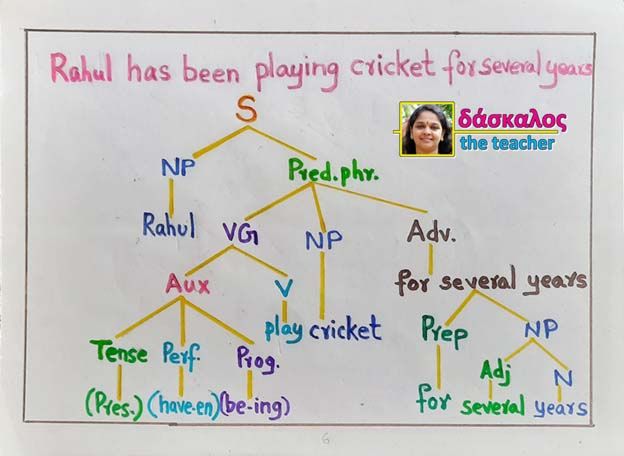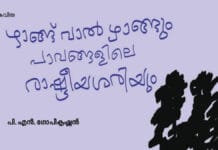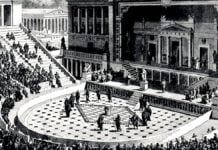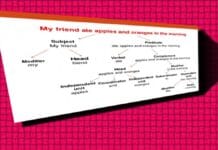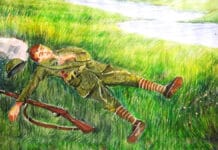A single sentence comprises an NP (subject) and a predicate phrase. Apart from a compulsory verbal group, this predicate phrase may optionally have one or more noun phrase(s), preposition phrase(s), adverbials and adjective phrases.
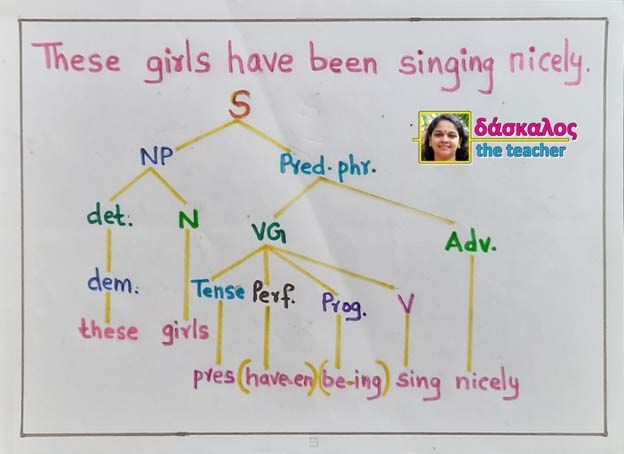
Noun Phrase
A noun phrase may be a single word, a single noun or a pronoun, or a group of words belonging to the noun and cluster around it.
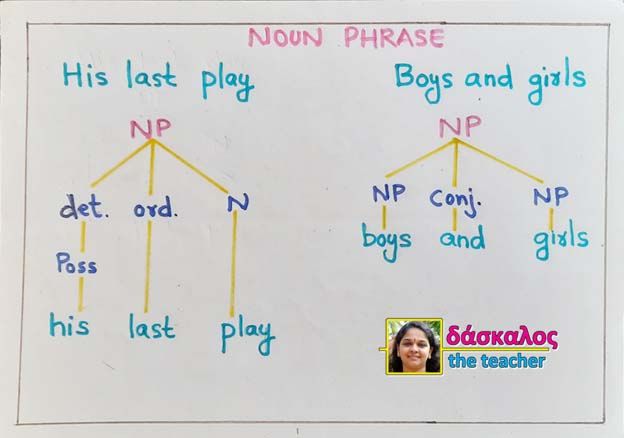
A noun phrase has a noun( a headword) and certain modifiers. Generally, a noun in a noun phrase(optionally) has the following modifiers appearing before it in the given order:
- Restrictor: words like especially only, merely, just, almost, particularly, even
- Pre- determiners: words like half, double, both, one-third, twice, all of
- Determiners: these words include
(a) Articles: a/a
(b) Demonstrators: this, that, these, those
(c) Possessives: my, his, own, Ram’s - Ordinals: words like first, third, last, next
- Quantifiers: words like many, several, few, less
- Adjective phrase: good, long, tall or intensifier and adjective
- Classifier: a city college, a leather purse
Preposition Phrase
A prepositional phrase is a Noun phrase preceded by a preposition. Sometimes, a noun phrase contains a Preposition phrase embedded in it. In such cases, the Noun phrase can be broken into NP and preposition phrase. Both can then be further split up.
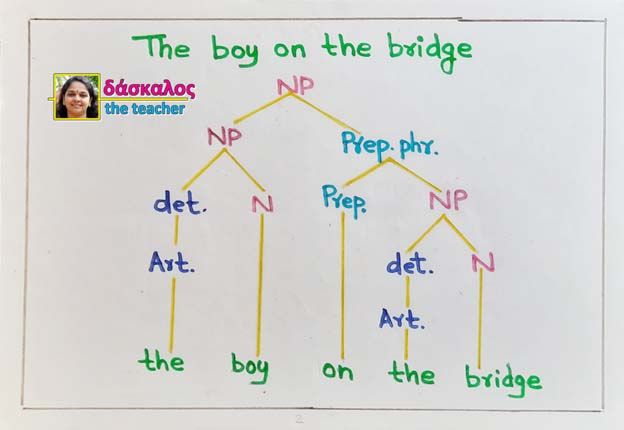
The Verbal Group (VG)
The verbal group generally immediately follows the NP in a typical English sentence. It consists of the main verb and the auxiliary.
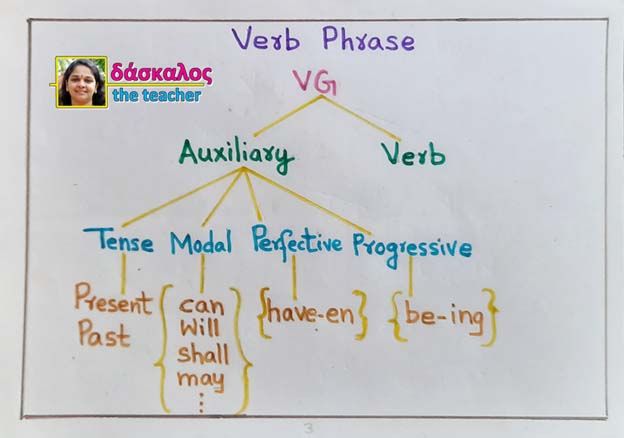
Auxiliary, in turn, is made up of the tense (compulsory item) and any one or more of the following items.
Modal (marked by modal auxiliaries like can, may, etc.)
Perfective (marked by have + en, wherein is a marker of the past participle morpheme)
Progressive (marked by be + ing)
Tense, it may be stated here, is a grammatical category seen in the form or shape of the verb. normally, in English, tense is realized as
–e(s) present
–e(d) past
In the expressions will play or will eat, will is in the present tense, the past form of which is would.
In a classical language like Sanskrit, which has three tenses, these are shown in the basic verb’s three forms while referring to the present, past or future time.
Basic verb – पठ् / read
Present – पठति / reads
Past – अपठत् / read
Future – पठिष्यति / will read
Corresponding to this, there are only two such forms in English.
E.g., plays, played.
The use of modals shall/will is only one of the mechanisms of expressing future time. Also, will/shall do not always express future time.
E.g., Sita will be at home now (present time).
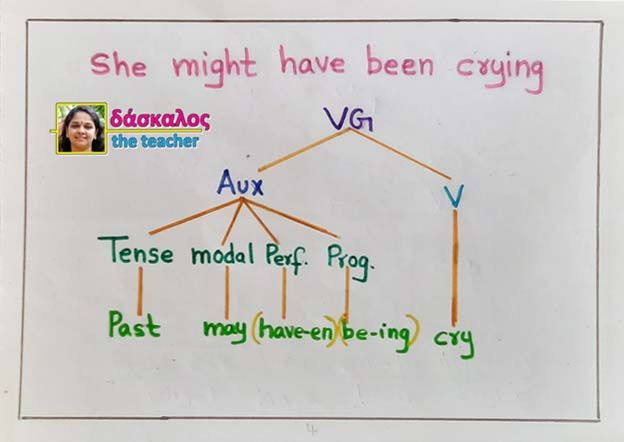
Also, it should be noted that while tense and the main verb are the compulsory segments of a verbal group, the modal, the perfective, and the progressive are only optional items.
Adverbials
Any group of words that performs the function of an adverb is called an adverbial. It may consist of a single word, phrase or clause. It is generally specific time, place, manner, reason, etc., and modifies a verb, an adjective or a fellow adverb.
